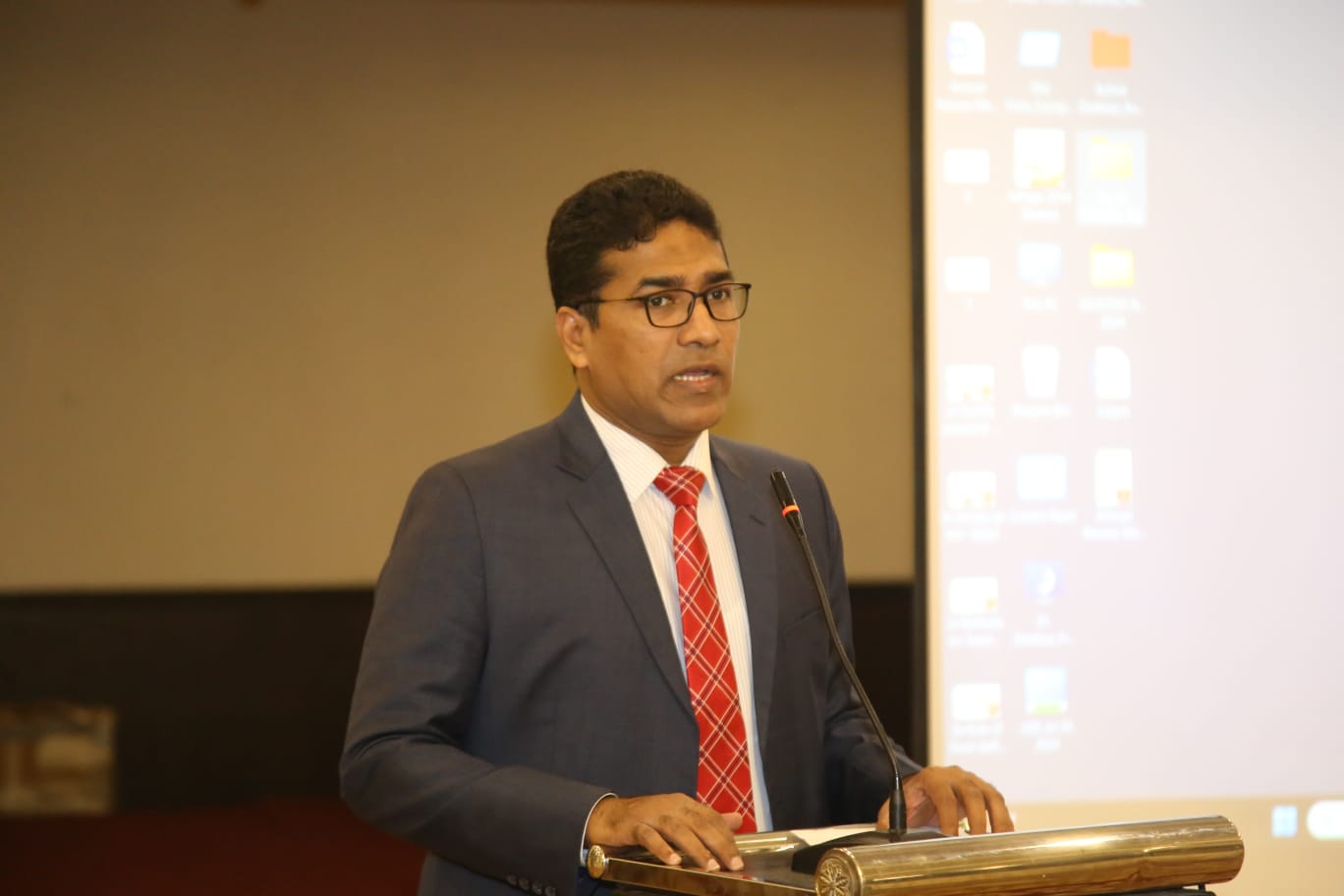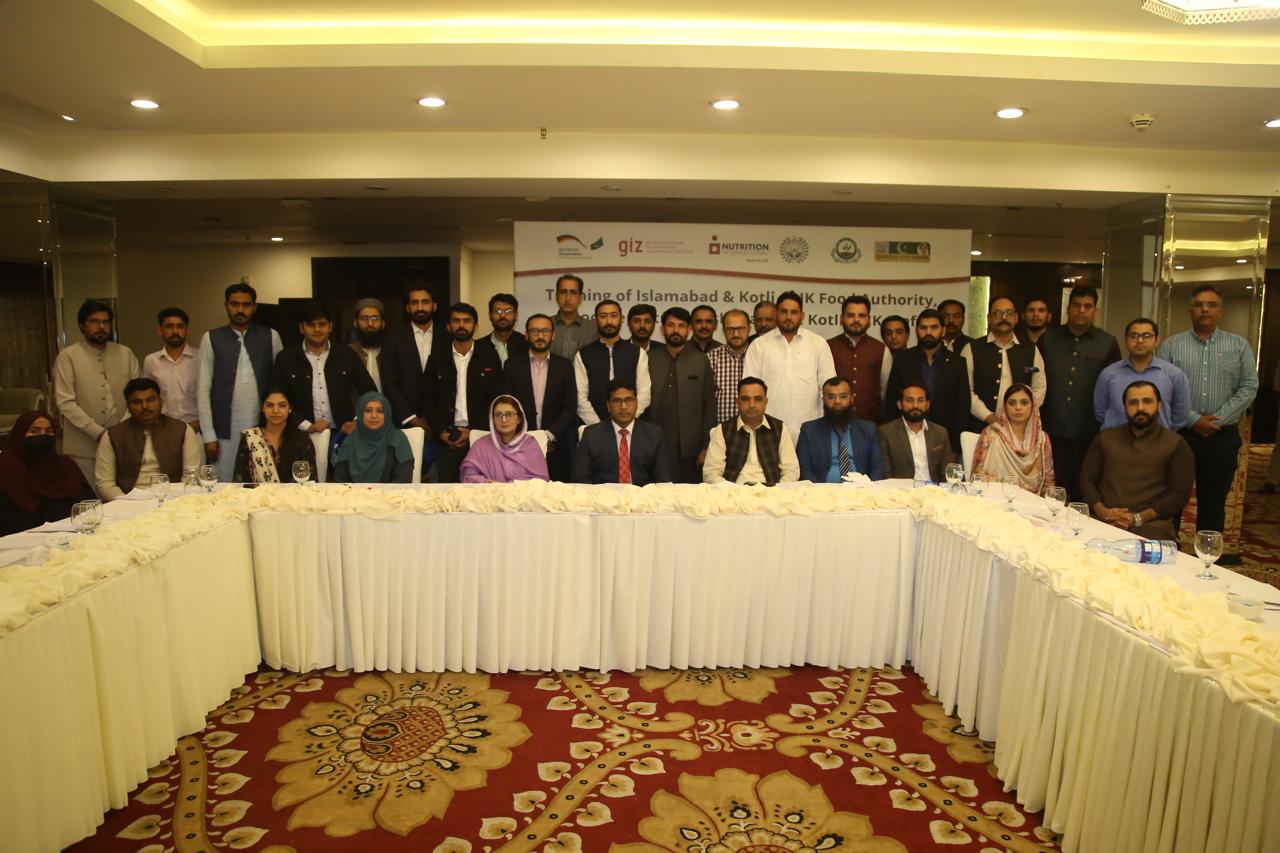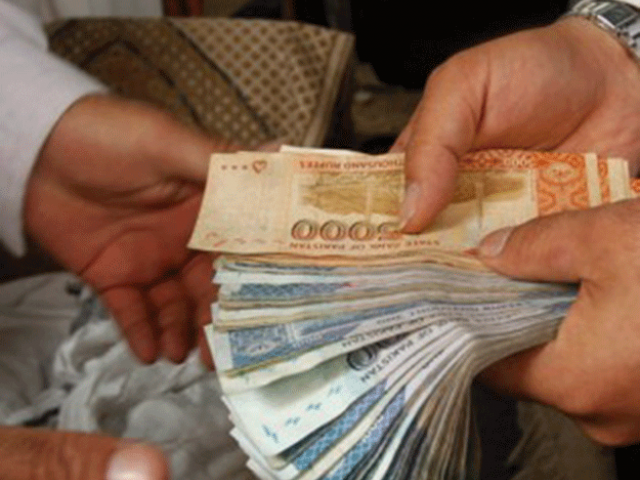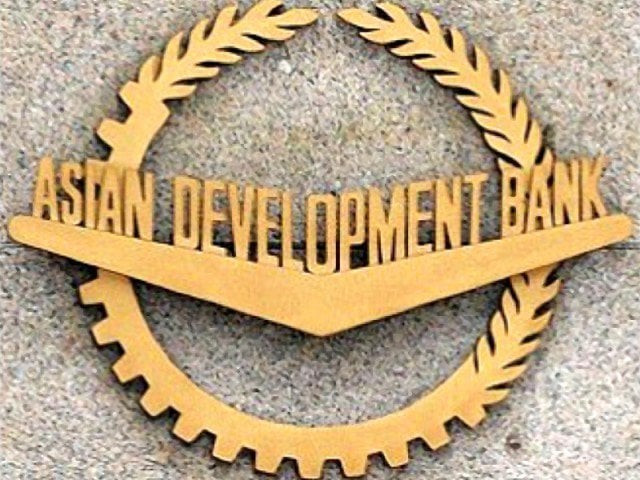By Muhammad Sohail
ISLAMABAD, PAKISTAN | November 6, 2024 –
The Benazir Income Support Programme (BISP), in partnership with GIZ and Nutrition International, today organized a critical training session in Islamabad under the SOPRAN project, “Social Protection Support Program for Adolescent Girls’ Nutrition.” This session, targeted Food Authority and Food Department staff from Kotli and Islamabad, focused on food fortification, Quality Assurance/Quality Control (QA/QC), and food safety protocols.

The project is funded by the Federal Ministry for Economic Cooperation and Development (BMZ) and the Bill & Melinda Gates Foundation (BMGF).
The SOPRAN initiative will be introduced in public schools across seven districts in Pakistan, aiming to improve the nutritional status of adolescent girls and increase access to fortified wheat flour through local mills. This project leverages BISP’s Taleemi Wazaif program to empower adolescent girls as change agents via nutrition interventions, including Weekly Iron Folic Acid Supplementation (WIFAS), nutrition education, and increased access to fortified wheat flour. Officially launched today, September 27, 2024, at a national event organized by BISP and GIZ in collaboration with Nutrition International, the project addresses the significant issue of iron deficiency anaemia among adolescent girls, which affects 56.6% according to the National Nutrition Survey 2018.
This training session tackled this critical issue by equipping participants with essential knowledge to implement and monitor effective food fortification practices within their communities, thus supporting the nutritional well-being of adolescent girls and their families beyond the immediate project.
Addressing iron deficiency sustainably through knowledge transfer and institutional strengthening offers a viable solution to this major public health challenge in Pakistan and globally.
Ms. Faiza Wahab, Food Security Advisor for SOPRAN at GIZ Pakistan, emphasized the critical role of food authorities as the backbone of initiatives like this, especially in contributing to the quality control and quality assurance of the fortification process, as well as food-related regulations overall. She highlighted the importance of equipping institutions with knowledge and awareness to address the country’s nutrition challenges effectively. Ensuring nutrient quality throughout the food supply chain requires stringent regulations, best practices, quality control, and consistent monitoring, all of which are essential for successful nutritional interventions.
Ms. Wahab also stressed the importance of leveraging social support platforms to efficiently reach target groups. She noted that by fostering strong networks between food department officers and local chakkies owners for fortification programs, food authorities can help ensure best practices in quality assurance. This approach will directly enhance access to balanced nutrition in staple foods like flour, benefiting those who suffer from anaemia and helping to prevent iron deficiency anaemia more broadly.
She encouraged the participants to continue learning and sharing their knowledge for the betterment and well-being of Pakistan.
Mr. Shahzad Hussain, National Program Manager for SOPRAN at Nutrition International, emphasized the project’s commitment to the nutritional health of adolescent girls. “Nutrition International has been dedicated to improving nutrition in Pakistan since 2001. Our goal is to reduce anaemia and support adolescent girls’ health by integrating targeted nutrition interventions into social protection programs,” he said. Explaining the training’s purpose, he added, “By fortifying wheat flour through local chakkis near schools, we are enhancing access to nutrient-rich flour for adolescent girls and their families. This training empowers participants with essential skills in fortification, quality control, and quality assurance, which are crucial for creating a ripple effect in community health.”
Asim Javed, Director General of Punjab Food Authority, stressed the importance of food safety from farm to fork, calling it a fundamental public right. “We must create a culture where food safety and nutrition are of paramount importance for building a healthier, stronger society. The Punjab Food Authority is proud to support the SOPRAN project, recognizing its essential role in promoting the physical and cognitive development of adolescent girls for the greater good of our communities,” he said.
Ms. Tehmina Gulzar, Deputy Director of the Benazir Income Support Programme (BISP), emphasized the importance of integrating nutrition-focused interventions within social protection programs. She elaborated on BISP’s role in uplifting the lowest-income segments of society and highlighted the program’s positive impact on these underprivileged groups. She noted BISP’s proactive response to the urgent anaemia crisis among adolescent girls in Pakistan. Additionally, Ms. Gulzar clarified the Unconditional Cash Transfer (UCT) and Conditional Cash Transfer (CCT) initiatives under BISP, outlining their role in supporting vulnerable populations.
BISP as the Lead of the SOPRAN project, called upon food authorities to implement stringent quality control measures to ensure food safety, particularly for the SOPRAN project. She emphasized the critical need for quality control to support the program’s objectives effectively.
The SOPRAN project operates across seven districts in Pakistan—Shaheed Benazirabad, Faisalabad, Swat, Quetta, Kotli, Skardu, and Islamabad—providing WIFAS and nutrition education to adolescent girls enrolled in the Taleemi Wazaif Program. By collaborating with local chakkis to fortify wheat flour with iron, folic acid, zinc, and vitamin B12, the project aims to increase the availability of fortified flour and improve food safety through capacity building for food authorities and millers.
Since its inception, the Taleemi Wazaif Program has enrolled over 12 million children and disbursed Rs. 63.34 billion in educational support. By integrating nutrition, BISP and its partners are creating an innovative, nutrition-sensitive model within social protection platforms that empowers adolescent girls to reach their full potential.




